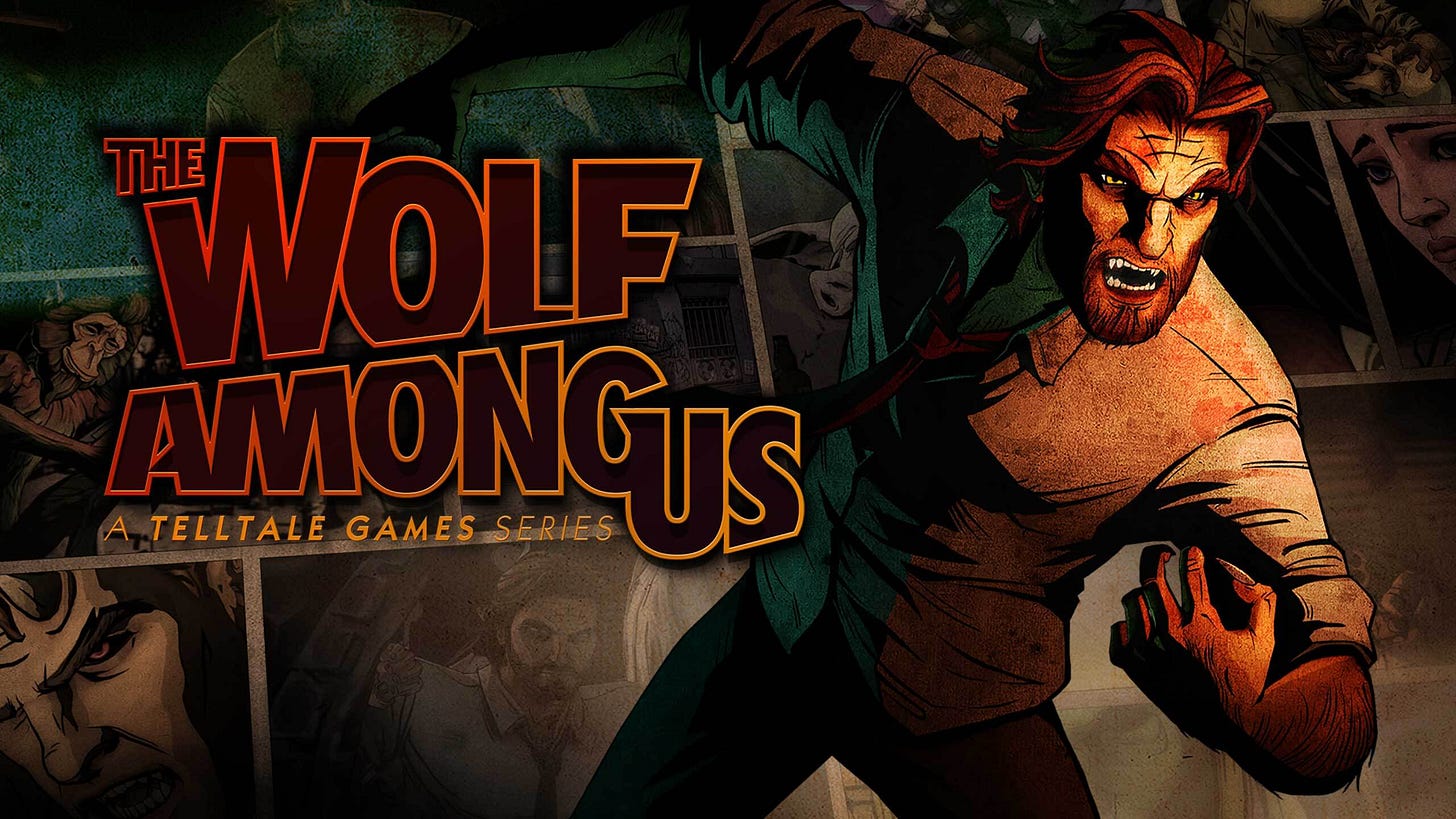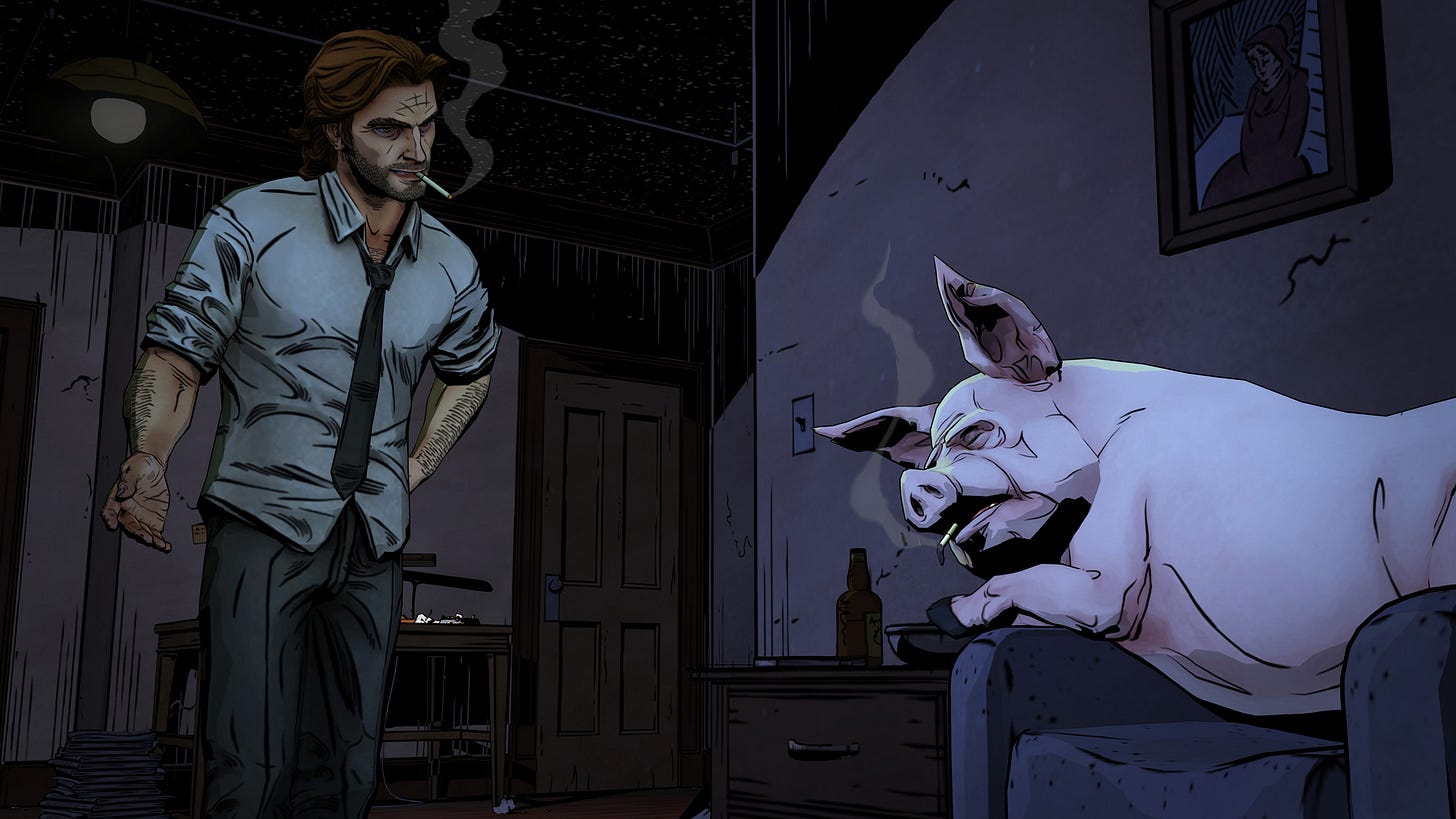Recently, looking for something else, I stumbled across an online discussion (not quite an argument — let’s call it a vigorous debate) about Fables. Specifically it concerned whether or not the new Wolf Among Us 2 video game (forthcoming next year from Telltale Games) would be canon. Without going into specifics of the arguments presented, I noted that one of the participants claimed that he’d be quite disappointed if it weren’t considered canon to the rest of Fables.
I didn’t weigh in on the debate. As much as I’m a fan of Woody Allen pulling Marshall McLuhan from behind a sign board to settle an argument about McLuhan’s work,1 it might work as a comedy bit, but in real life was hardly my place to intrude.
But it got my attention. Here then is my certain to be disappointing take on the matter: As a very general personal rule, only those Fables stories I wrote in full are what I consider canon. Those stories I co-wrote, or had a strong hand in supervising, might or might not be canon, and are decided on a case by case basis. And that’s it.
No, I’m not saying that those Fables stories I had no hand in are bad. One of my favorite Fables stories was written by someone else. I’m not judging their quality here, one way or the other. I’m just saying I don’t feel obligated to consider the events of those tales when working on new Fables stories,2 or when working out the official (so far only for my internal use) Fables timeline.
That’s it. That’s the only utility canon or not canon holds for me, concerning anything Fables.
Under that rule the new Wolf Among Us 2 game cannot be considered canon, by me, because I had no hand in crafting the story (and it is a story that happens to be in the form of a game), or overseeing its development. How can I possibly hold myself beholden to any story decisions they might choose to make?
Because I was involved in overseeing many aspects of the first Wolf Among Us game, I thought it would be canon to the larger Fables universe, and said so at the time, more than once. Little did I know that the scripts I helped direct would be massively rewritten, after my pass through them, and hold little resemblance to what was ultimately produced and released (without updating me on the changes). Like most of you, I only found out what the actual story was when the game came out (actually a wee bit before, when the Telltale crew came out to my house to film me playing through it).
That’s how a story that was canon, or was at least going to be, almost retroactively fell out of canon status. It was a bit of a mess all around. Not quite as dramatic as the fall chronicled by Milton,3 and hardly as important, but worth mentioning, at least to me.
Does any of this matter? I don’t see how. Are you, the reader (or the gamer), not free to decide for yourself what is and isn’t canon to you? Yes, you are absolutely free to do so.
Personally, I don’t care which of their stories Heinlein, Burroughs, Zelazny, or Vonnegut did and did not consider canon. I’m certain I wouldn’t know how to find that out. I do know which ones I like, which ones (very few) I don’t like, and which stories I love. That’s enough for me.
So then, there you go. Navigate the stories you love as best you can, with my blessing. And don’t be afraid of distant canons which have no power to harm you.
In his film Annie Hall.
Yes, there will be new Fables stories. Stay tuned.
A reference to his Paradise Lost epic poem, in the hopes of impressing you with how scholarly I am.








The fact that everything in Jack of Fables may or may not be canon makes more sense than if it was all to be taken strictly literally. *rim shot*
Although in my headspace canon, one time Jack inspired the Phantom of the Opera by trying hard to get laid while recovering after a run-in with Sheriff Bigby.
I always took it for granted that the author/creator of any given work was the only one fit to decide what was and was not canon in it.